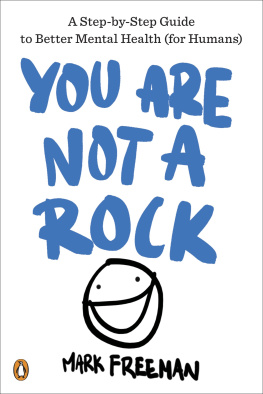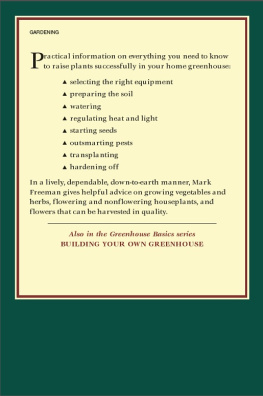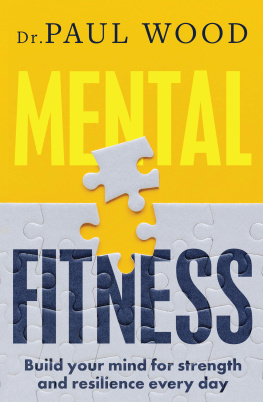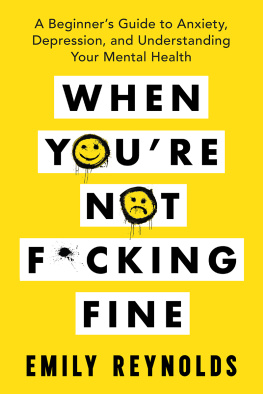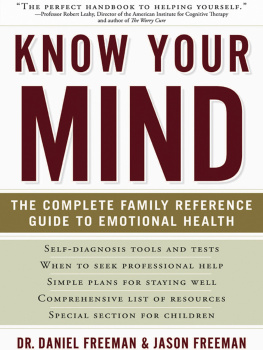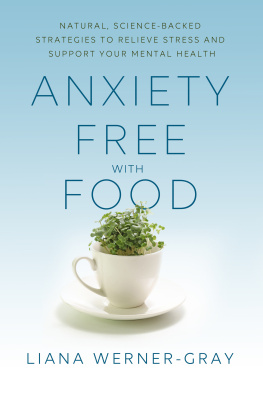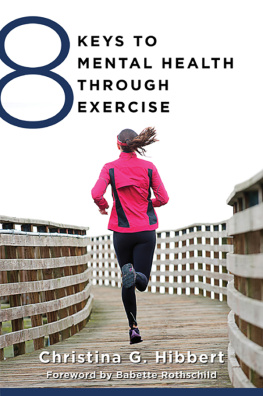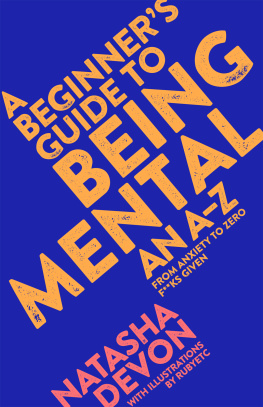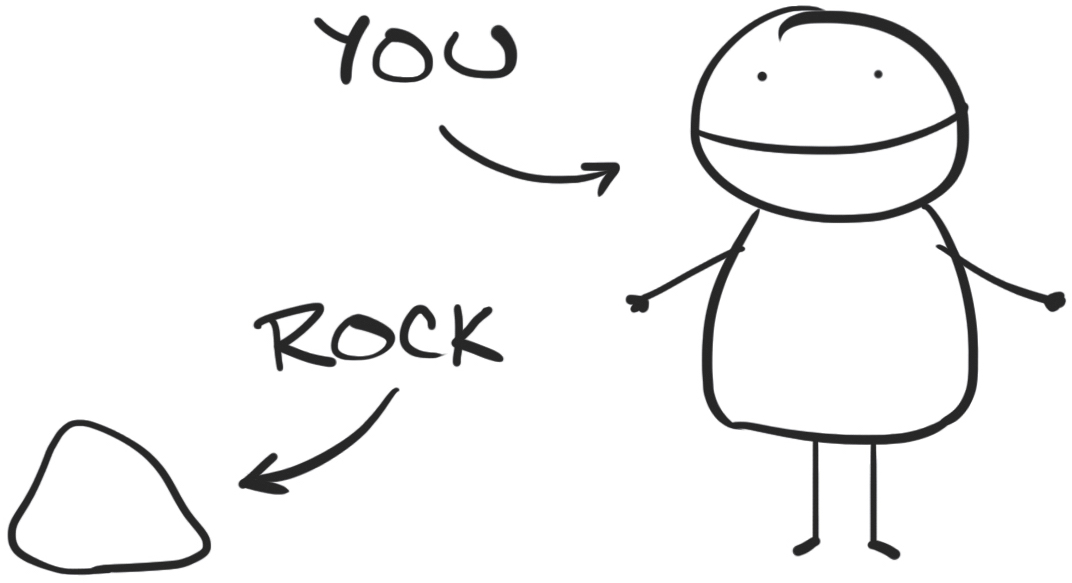PENGUIN BOOKS
YOU ARE NOT A ROCK
Mark Freeman is a mental health coach and human-centered design workshop facilitator based in Toronto. He has taught Shakespeares plays in Korea, tended gardens in Spain, filmed an Arabic-language documentary on youth employment in Cairo, and facilitated strategy workshops for executives at multiple Fortune 500 companies. After recovering from several mental illness diagnoses, he now focuses on leveraging technology and design to help people around the world navigate the complex changes necessary to improve and maintain great mental health and fitness. He is the cofounder of the online mental health community Everybody Has a Brain, and he is a Stanford Medicine X ePatient Scholar. His favorite pastimes include sitting and breathing.
PENGUIN BOOKS
An imprint of Penguin Random House LLC
375 Hudson Street
New York, New York 10014
penguinrandomhouse.com
First published in Great Britain by Piatkus, an imprint of Little, Brown Book Group Publishing, 2017
Published in Penguin Books 2018
Copyright 2017 by Mark Freeman
Penguin supports copyright. Copyright fuels creativity, encourages diverse voices, promotes free speech, and creates a vibrant culture. Thank you for buying an authorized edition of this book and for complying with copyright laws by not reproducing, scanning, or distributing any part of it in any form without permission. You are supporting writers and allowing Penguin to continue to publish books for every reader.
Art copyright Mark Freeman 2017
LIBRARY OF CONGRESS CATALOGING-I N-PUBLICATION DATA
Names: Freeman, Mark (Author and mental health advocate), author.
Title: You are not a rock : a step-by-step guide to better mental health (for humans) / Mark Freeman.
Description: New York, NY : Penguin Books, 2018. | Includes index.
Identifiers: LCCN 2018018376 (print) | LCCN 2018029504 (ebook) | ISBN 9780525504511 (ebook) | ISBN 9780143132608 (paperback)
Subjects: LCSH: Mental health. | Emotional Freedom Techniques. | BISAC: PSYCHOLOGY / Mental Health. | SELF-HELP / Personal Growth / General. | PSYCHOLOGY / Emotions.
Classification: LCC RA790 (ebook) | LCC RA790 .F72 2018 (print) | DDC 613dc23
LC record available at https://lccn.loc.gov/2018018376
Neither the publisher nor the author is engaged in rendering professional advice or services to the individual reader. The ideas, procedures, and suggestions contained in this book are not intended as a substitute for consulting with your physician. All matters regarding your health require medical supervision. Neither the author nor the publisher shall be liable or responsible for any loss or damage allegedly arising from any information or suggestion in this book.
Version_1
Thank you to everybody whos tolerated my stumbling around on this journey. Thank you for offering shelter, feeding me cookies, and sharing your knowledge about how to cross the rivers ahead.
CONTENTS
INTRODUCTION
I HAVE A BRAIN
Ten years ago, if youd told me Id be writing a book about overcoming mental illness and building better mental health, I would have said you were crazy. I didnt know anything about mental health, and I certainly didnt have a mental illness. But I was very wrong.
By the time I was in my late twenties, reality was increasingly something with which I struggled. Whenever I left my apartment, Id go through a series of rituals to check the stove, stand in front of it, check that appliances were off, that they didnt feel hot, unplug anything I could unplug, check that the windows were locked, and then, finally, leave the apartment. Then Id lock the front door, check that the front door was locked, and debate with myself about whether my memory of checking the stove moments earlier actually came from a few moments ago or the day before. Id leave, then come back to check that my laptop was hidden under my bed so thieves wouldnt find it, and then, realizing that the curtains were open, Id close them because the thieves might have seen where I hid my laptop. Then Id take it from under my bed and put it in my closet under some clothes before leaving the building by a different door from the one I came in by (to trick the thieves who were watching me). But then Id go back to check the lock again because I was so focused on my escape route, I couldnt remember if Id locked the front door, and as I was already back at the apartment, why not check the stove again, the back door, maybe the toaster, check if there was anything near any of the plugs that could catch fire, and then jiggle the door again on the way out, then once more because the first time might have unlocked it. Id finally peel myself away, preoccupied with imaginary conversations in my head between me and people I was upset with at school because of something that had almost happened the day before.
When I walked upstairs, I would see myself falling and splitting my jaw apart on the steps, teeth scattering everywhere. The bones in my face would ache like it had actually happened.
When I was standing at an intersection, I would see cars run right over the pedestrians in the crosswalk, splashing guts and bones across the road in front of me. I would feel like I was going to vomit.
I saw violent things happen to other people or me all of the time, and the violence was often my fault. I was afraid to carry knives in the kitchen if anybody else was around because I would see myself stabbing them. I couldnt carry a knife in the kitchen if my roommates cat, Glick, was there because Id see the knife go right through Glicks head. If I was cutting vegetables, Id feel my fingers getting sliced off.
Reality was a subjective, viscerally painful experience. I developed stereotypical symptoms of obsessive compulsive disorder (OCD), like repeatedly washing my hands under scalding hot water, along with lesser-known symptoms, like checking my ID repeatedly and wondering if the person pictured on it was actually me. I was convinced I would someday hand it to a police officer and get thrown in jail because I was impersonating somebody. And these are only a tiny selection of the extreme end of the symptoms with which I struggled. Most of the time, I was just drowning in anxiety for no particular reason.
But I didnt even think any of that was strange. When I first went to see a counselor, all I told her was that I was having some depression and sex issues. I had no idea why. In any situation, my brain would immediately jump to the worst, most violently gruesome outcomes imaginable. I spent all of my time and energy either ruminating or trying to find somebody to hook up with (but then not actually meeting them because of my insecurities and health anxieties). Those were the only problems in my life. I was very smart. I was not crazy.
I got a bunch of mental illness labels stuck on me as I stumbled through the system: OCD, generalized anxiety disorder (GAD), depression, and addiction. Those labels were as much about each therapists areas of expertise as they were about what I was aware of or willing to share.
The specific symptoms I struggled with might make for great suffertainment or illness porneverybody loves to gawk at a good car crash as they creep by on the freeway of lifebut I swear that the far more interesting journey is the journey of being healthy. I no longer struggle with any of those diagnoses. This is not a book about my past. This is not a book about

